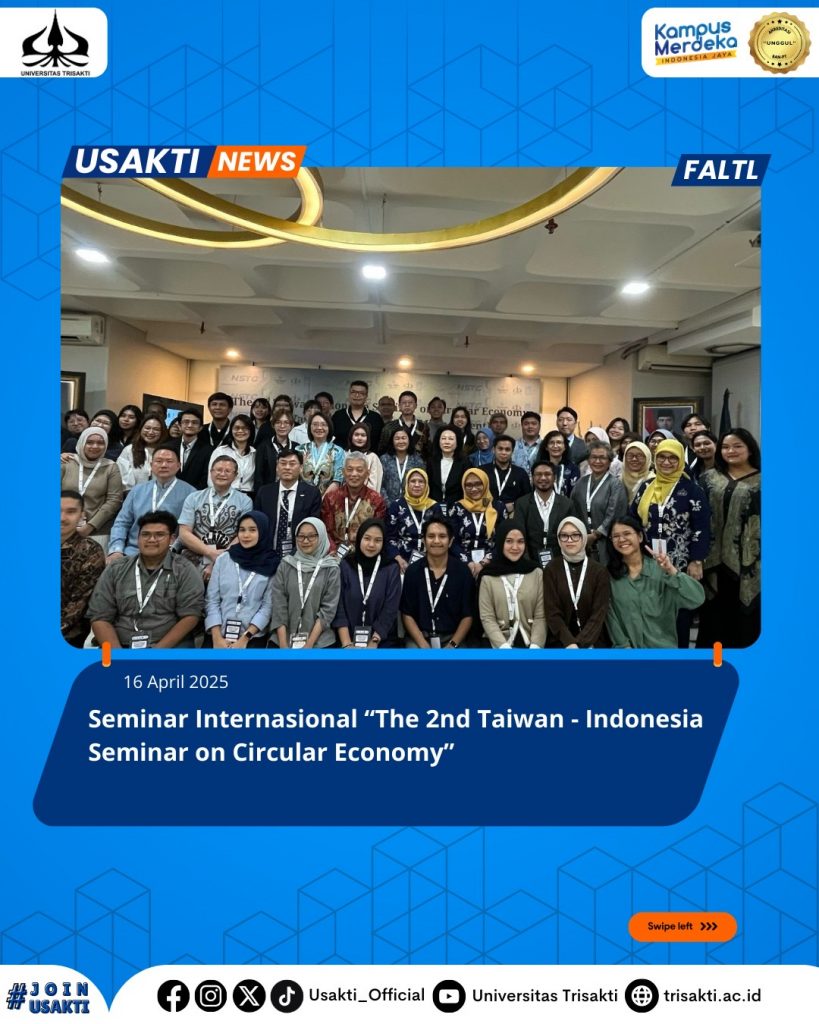Contact Us
- JL. Kyai Tapa No. 1 Grogol
- Jakarta Barat, Indonesia
- Phone:
- (62-21) 566 3232
- Whatsapp:
- (+62) 882 194 856 74
- (+62) 877 707 077 03
- Fax: (62-21) 564 4270
- Email: humas@trisakti.ac.id

The Faculty of Landscape Architecture and Environmental Technology at Universitas Trisakti successfully hosted a prestigious international seminar entitled “The 2nd Taiwan – Indonesia Seminar on Circular Economy (E-waste and Plastic Waste Management)”, held on April 15–16, 2025, on the 12th floor of Building M.
The event brought together academics, researchers, and practitioners from Indonesia and Taiwan, all of whom are focused on the issue of circular economy, particularly in the management of electronic waste (e-waste) and plastic waste. The seminar was also attended by the Rector of Universitas Trisakti, Prof. Dr. Kadarsah Suryadi, DEA, who delivered the opening remarks and emphasized the importance of international collaboration in addressing global environmental challenges.
In his speech, Prof. Kadarsah stated,
“Universitas Trisakti is committed to being a center for knowledge development and innovative solutions for environmental sustainability. This seminar serves as a vital moment to strengthen cooperation between Indonesia and Taiwan in the field of circular economy.”
The seminar aimed to achieve three main outcomes:
A key highlight of the seminar was the active involvement of the Environmental Engineering Study Program (Prodi TL) at Universitas Trisakti, which co-hosted the event alongside Sepuluh Nopember Institute of Technology (ITS), Widya Mandala Catholic University Surabaya, and the National Taiwan University of Science and Technology (Taiwan Tech). This collaboration was fully supported by Taiwan’s National Science and Technology Council (NSTC), the main sponsor of the event.
Through various panel sessions and discussions featuring speakers from both countries, the seminar served as a platform for the exchange of ideas, innovations, and strategies toward more sustainable waste management practices in the future. It is hoped that this collaboration will continue to grow and serve as a model for partnerships that can be applied across different sectors and regions.






